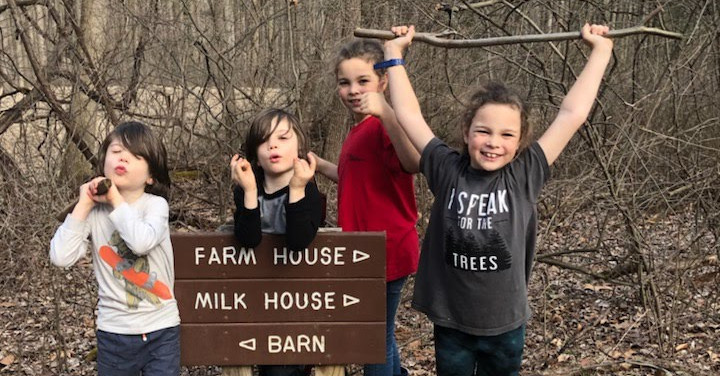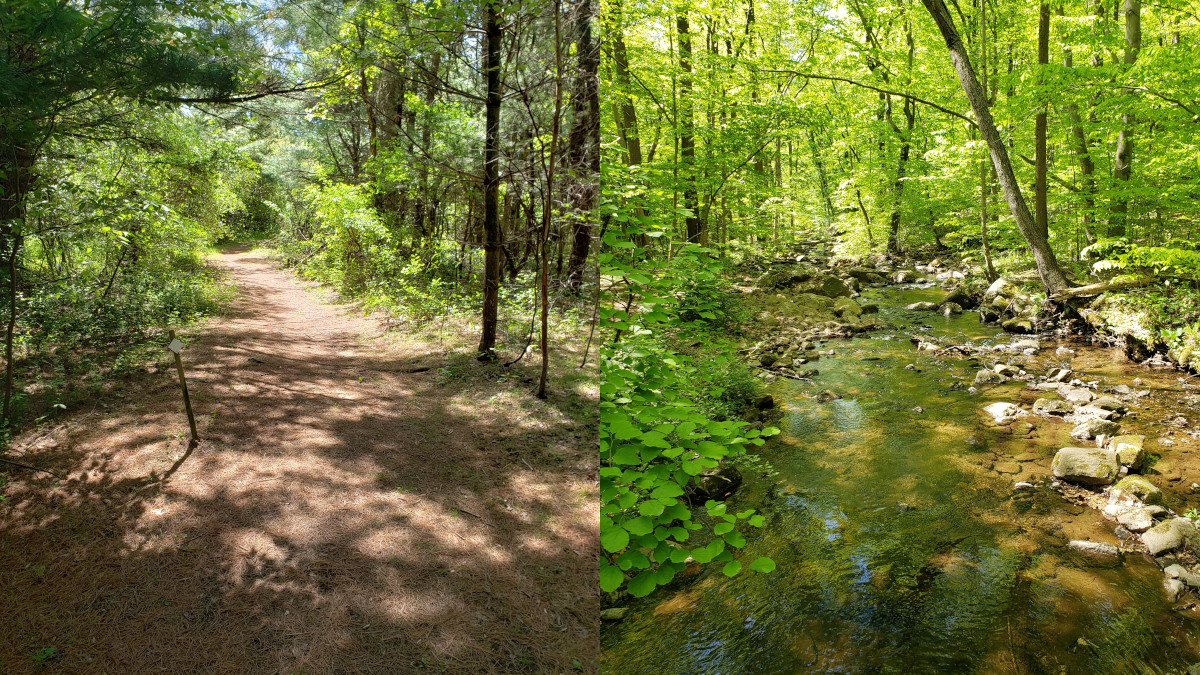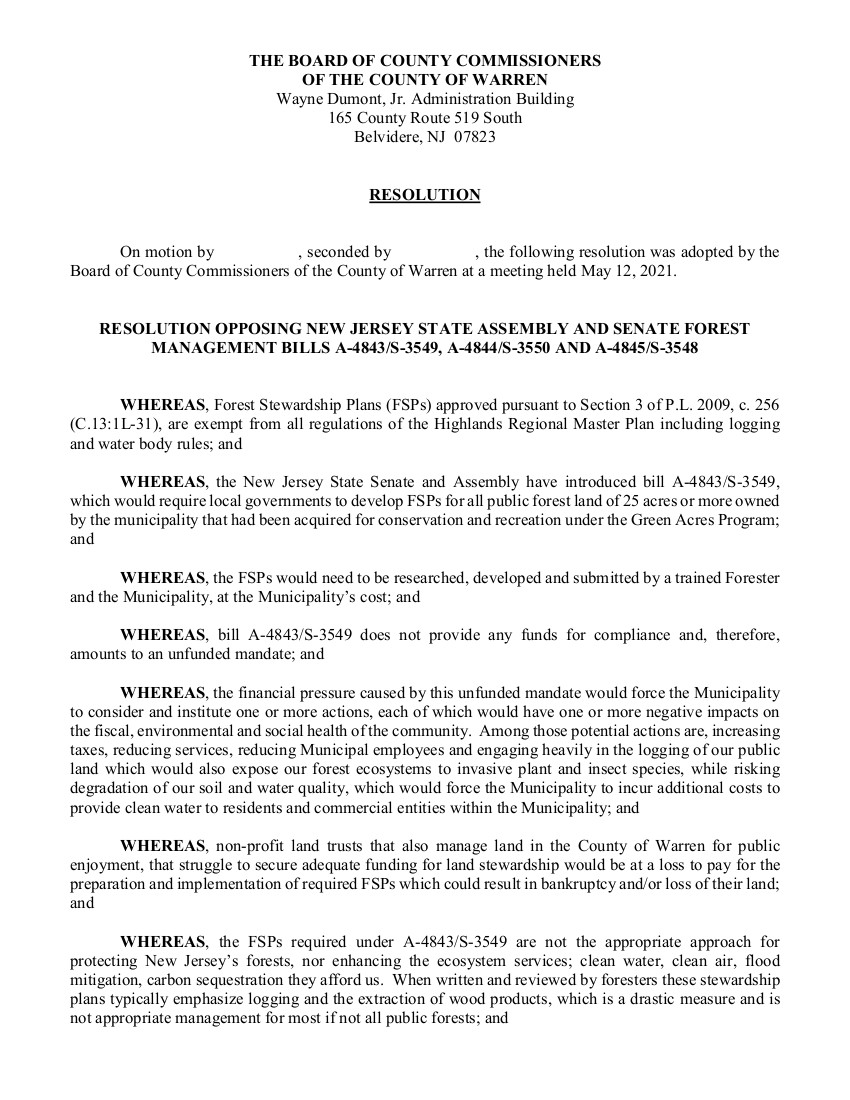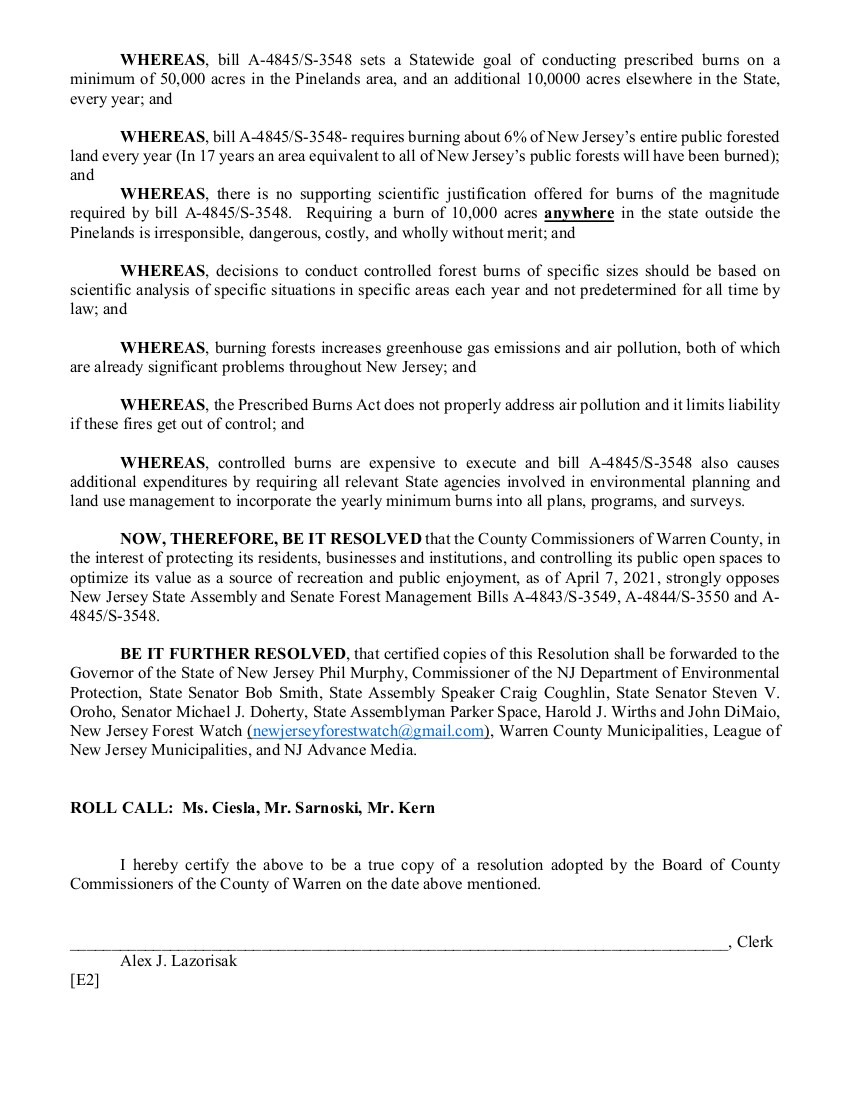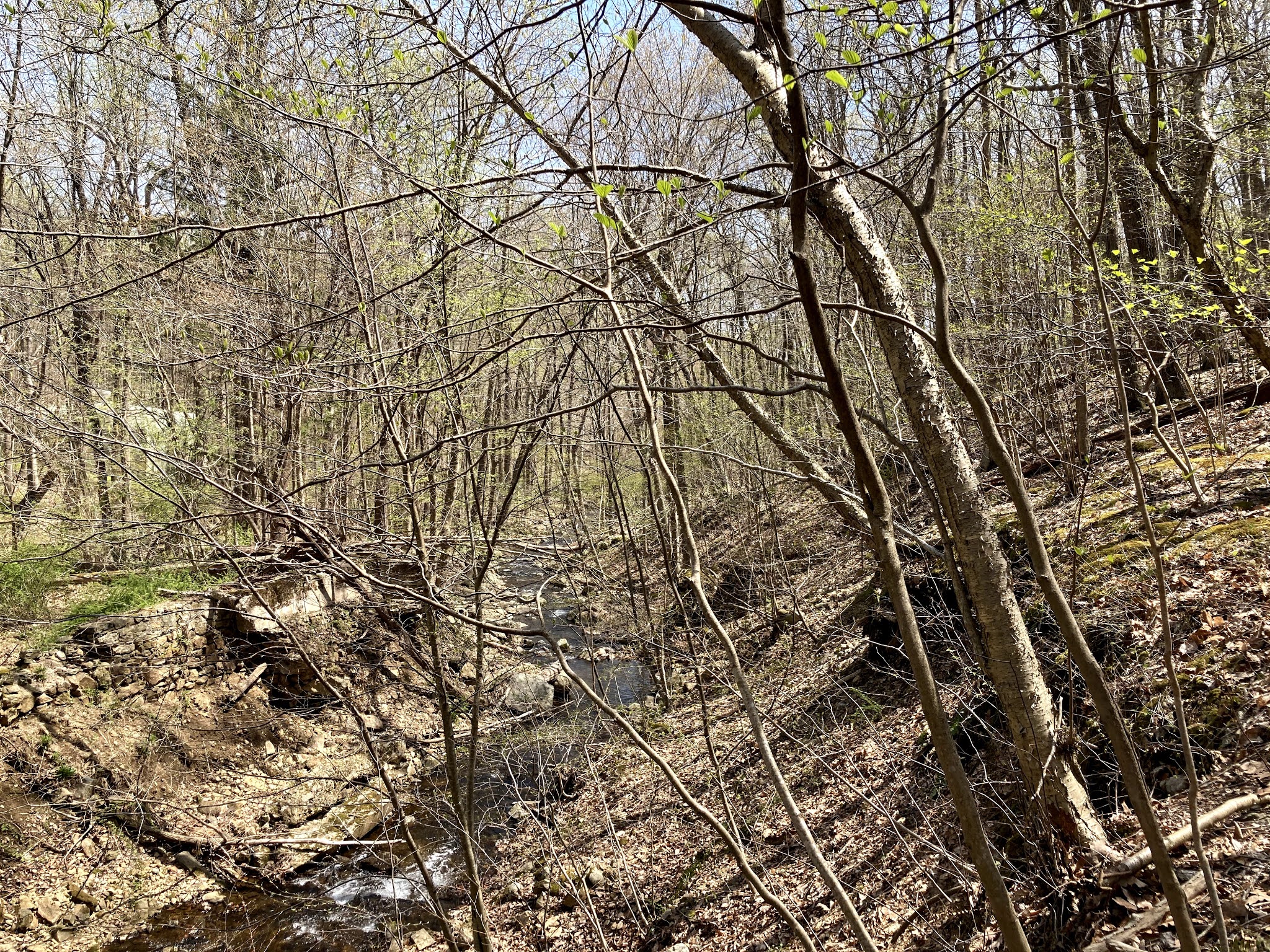
|
| Township residents volunteering at Roaring Rock Park |
Washington Township, Warren County NJ, organized a Trail Day at Roaring Rock Park on March 26, 2022. The day started out somewhat rainy and dreary, but spirits were lifted as Trout Unlimited and Team Support Roaring Rock Park volunteers arrived by the carload. Soon enough over 25 volunteers were on hand to tackle two important activities...
Stream Restoration / Tree Replanting
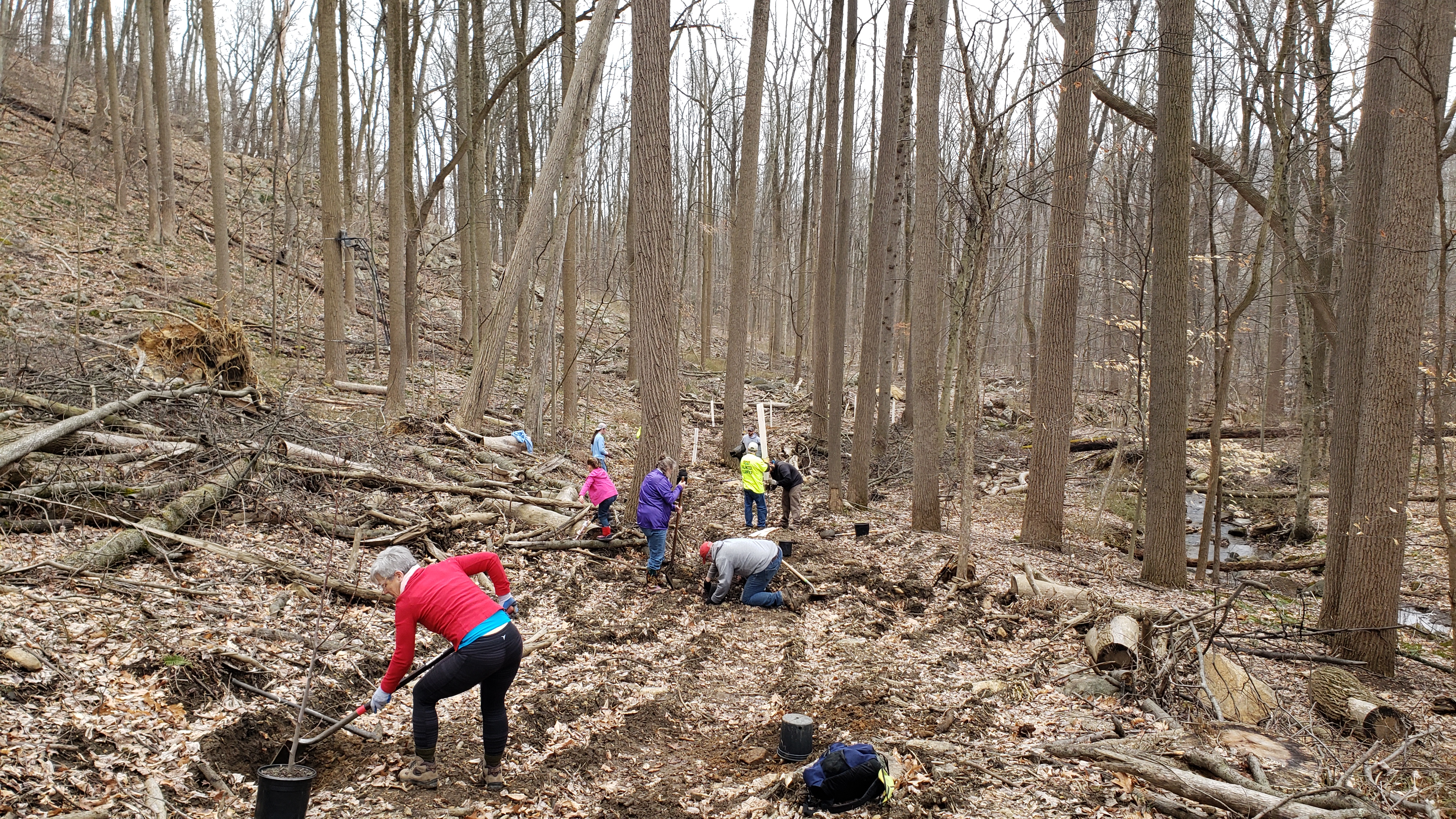
|
| Trout Unlimited planting native trees along Brass Castle Creek |
The first major activity, a stream restoration effort, was led by members of the Ridge and Valley chapter of Trout Unlimited (TU). This local TU chapter coordinated a tree replanting effort within the June 2021 logging site at Roaring Rock Park with Washington Township via its Passive Recreation Area Coordinator.

|
| Replanted poplar and oak trees at RRP June 2021 logging site |
TU is a national organization dedicated to conserving, protecting and restoring trout streams and their watersheds. In order to achieve their goals, local TU chapters conduct habitat improvement projects, stream restoration projects, stream clean-ups, and educational programs such as Trout in the Classroom, among other activities.
Approximately 35 trees, mostly poplar and oak, were replanted along an access road which the loggers used to haul out mature, healthy trees of the same species for sale on the timber market during the June 2021 commercial logging activity. The specific location is the logging site east of Brass Castle Road, between Harmony Brass Castle and Hartmans Corner Roads. This is the logging area which came uncomfortably close to Brass Castle Creek, generating concern about soil erosion.
Brass Castle Creek is one of a small number of classified streams in New Jersey supporting native brook trout, capable of natural reproduction. Team SRRP raised concerns last year about the creation of logging haul roads, and their negative effects not only on the park terrain, trees and wildlife, but also the risk of silt being deposited in the creek due to storm water runoff.
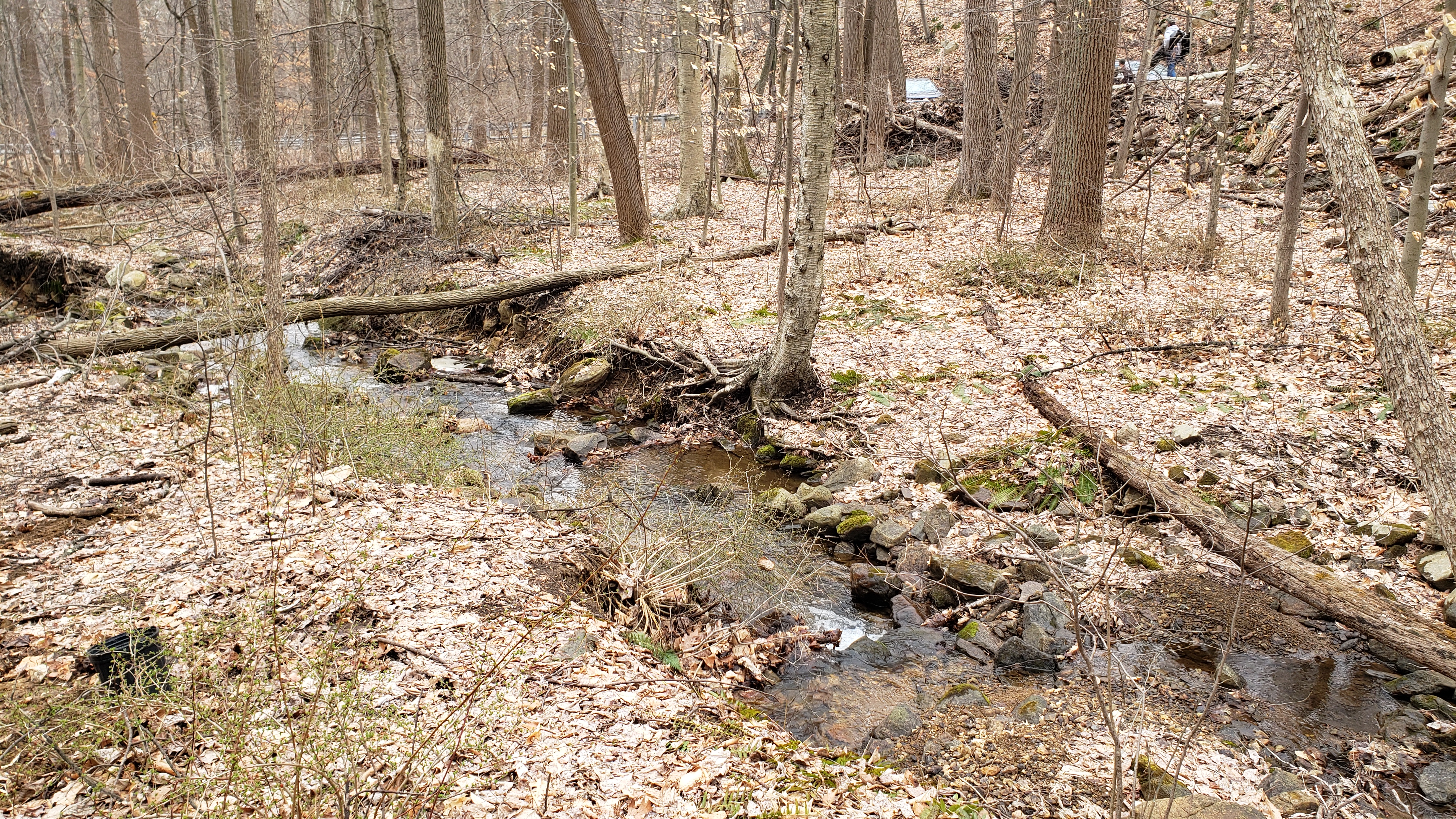
|
| Brass Castle Creek, close to where tree replanting took place |
This section of Brass Castle Creek, in particular, has ideal sun shade and water temperature characteristics that support fish populations living within it. Another adverse result of commercial logging within the park is mature tree removal decreases the shade providing canopy, thus removing important temperature regulating effects on the creek. Brook trout are particularly sensitive to warm water temperatures.
Team SRRP contributed funding to TU to support the acquisition of the trees used in the replanting project.
RRP Trail Clean up
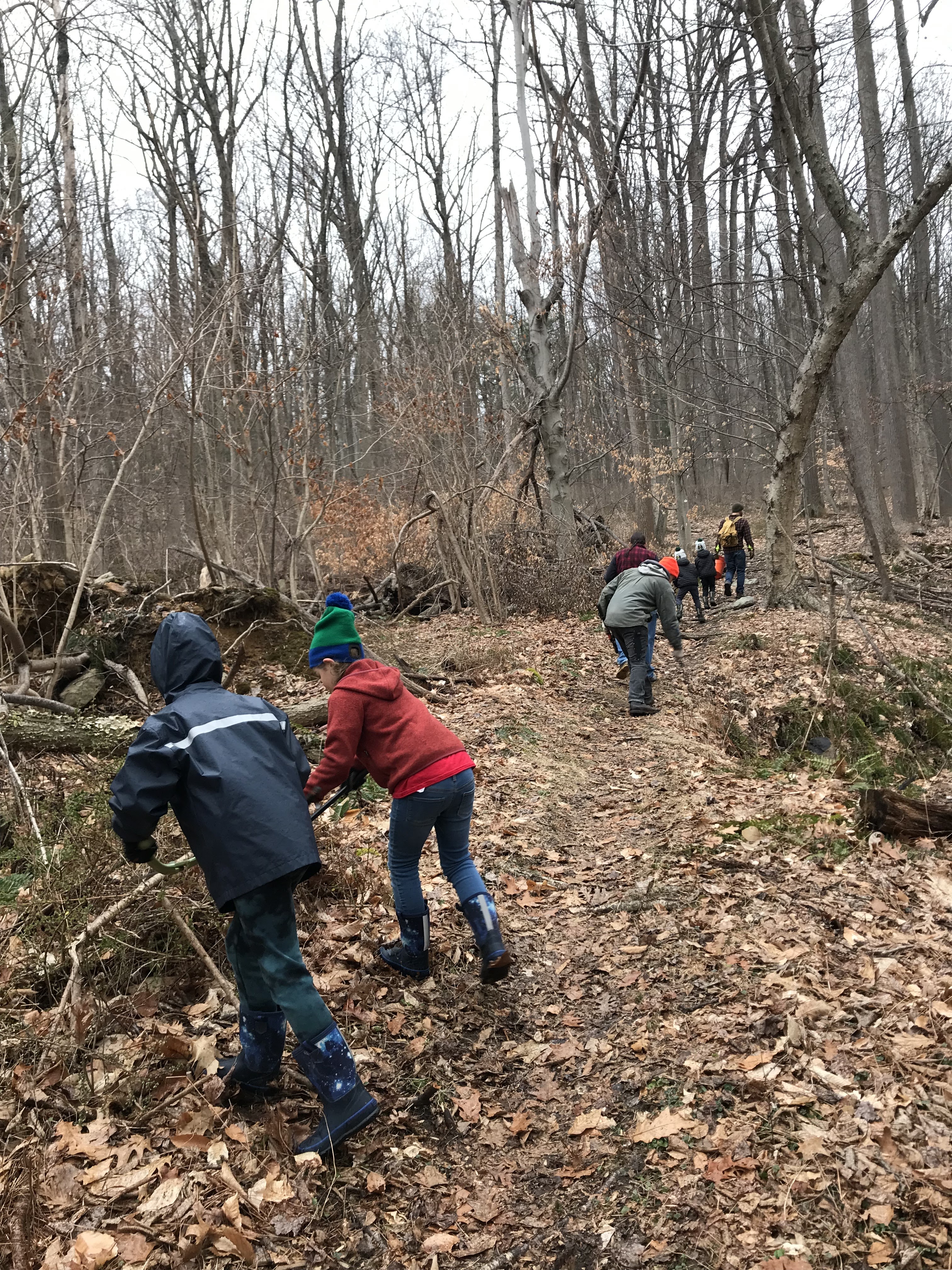
|
| Team SRRP volunteering at March 26 2022 RRP Trail Cleanup |
As Team TU was planting trees, Team SRRP and volunteers led by Washington Township's Passive Area Recreation Coordinator hiked along the Dick Flint Trail, widening the paths by cutting back invasive plant species such as Japanese barberry.
Japanese barberry is a particularly aggressive shrub introduced from Asia in the late nineteenth century as an ornamental to be used in gardens. Over the last one hundred years the species has made its way outside of backyard gardens and into forests across the eastern United States. Once barberry establishes a foothold on the forest floor, like most invasive species it crowds out native plants and tree saplings. Not only does Japanese barberry have strong thorns, which are a painful nuisance for hikers and discourages deer from browsing the plant itself, it also has characteristics that attract ticks. Pennsylvania plans to ban the commercial sale of barberry in 2023.
We had good volunteer attendance which allowed canvassing the full length of the trail with the clean up effort. Area residents who value local Warren County parks can contact Washington Township's Passive Area Coordinator to learn about upcoming trail days.
